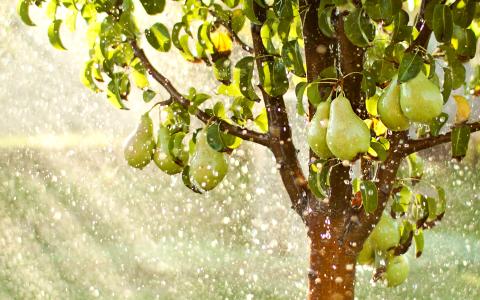Micah 6:8—What God Requires
He has shown you, O mortal, what is good.
And what does the Lord require of you?
To act justly and to love mercy
and to walk humbly with your God.
Response
Consider the following questions:
- Do you typically think of doing justice as a “requirement” of the Christian life? What does that mean to you?
- What might it mean to “act justly and love mercy” in your various spheres of influence (home, work, school, church, community . . .)?
- What justice- and mercy-seeking communities are you part of, or might you become part of?
- In what new ways do you feel God may be calling you to be a bringer of justice and mercy at this time in your life?
Isaiah 10:1-2—A Warning
Woe to those who make unjust laws,
to those who issue oppressive decrees,
to deprive the poor of their rights
and withhold justice from the oppressed of my people,
making widows their prey
and robbing the fatherless.
Response
Consider the following questions:
- What examples of unjust laws or oppressive decrees do you see in your community or your country?
- Throughout the Bible, God’s voice rings out to support people who are poor and oppressed and to protect them from injustice. In your opinion, does the church’s passion for justice and mercy match God’s? Why or why not?
- No political group or party can claim always to be on the side of justice and mercy. Keeping in mind the biblical vision of flourishing for all (shalom), how does your chosen political affiliation stack up? Challenge: talk about this with someone from a political party you do not affiliate with.
- How does the command to do justice and love mercy influence your voting habits and other political engagement?
Isaiah 58:9-10—A Promise
“If you do away with the yoke of oppression,
with the pointing finger and malicious talk,
and if you spend yourselves in behalf of the hungry
and satisfy the needs of the oppressed,
then your light will rise in the darkness,
and your night will become like the noonday.”
Response
Consider the following questions:
- A yoke is a type of harness used with a team of animals, typically oxen. Usually made of wood and iron, it’s heavy and rigid, and it restricts the animals’ freedom to move. In the Bible the word “yoke” is used to describe being bound to something or someone, for better or for worse. With this in mind, how would you describe “the yoke of oppression”?
- What are the needs of the oppressed? List as many different needs as you can.
- How might your church, or another group of which you’re a part, begin to meet the needs of the oppressed and “do away with the yoke of oppression”? What practical steps might you take?
- This passage puts “the pointing finger and malicious talk” on the same level as oppression. We are all guilty of judging and slandering others. What individuals or groups is it difficult for you to approach with compassion and mercy? How might you begin to change your perspective?
Revelation 21:1-4—A Vision for the Future
Then I saw “a new heaven and a new earth,” for the first heaven and the first earth had passed away, and there was no longer any sea. I saw the Holy City, the new Jerusalem, coming down out of heaven from God, prepared as a bride beautifully dressed for her husband. And I heard a loud voice from the throne saying, “Look! God’s dwelling place is now among the people, and he will dwell with them. They will be his people, and God himself will be with them and be their God. ‘He will wipe every tear from their eyes. There will be no more death’ or mourning or crying or pain, for the old order of things has passed away.”
Response
Consider the following questions:
- This passage shares a vision of a new heaven and a new earth that is completely free from pain, sadness, and death. What would it be like to live in that kind of world? What's one of the first differences you would notice in a world without pain, sadness, and death, and how would that lead you and your neighbors into the flourishing, abundant life of God's shalom?
- What would it be like to dwell with God every day? To see God, walk with God, talk with God?
- How do the words “the old order of things has passed away” make you feel? Joyful? Uncertain? Filled with anticipation? Why?
- Where do you see glimmers of the new heaven and new earth today?

